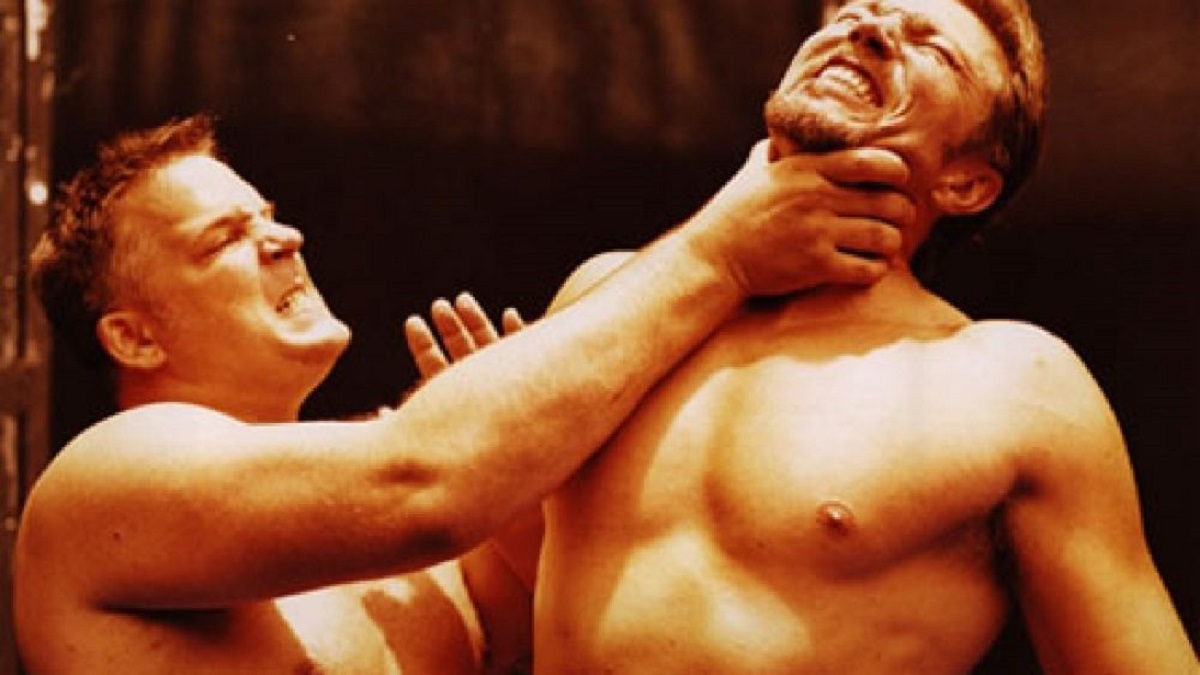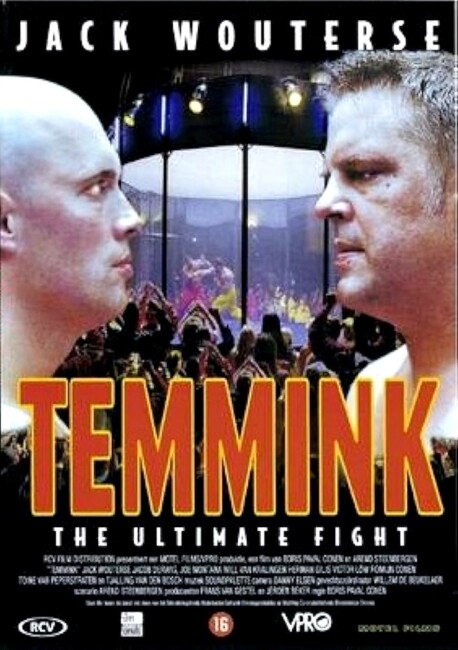Netherlands. 1998.
Crew
Director – Boris Paval Conen, Screenplay – Arend Steenbergen, Producers – Jeroen Beker & Frans van Gestel, Photography – Danny Elsen, Music – Soundpalette, Art Direction – Reuben Schwartz & Robert Jasper van der Hoop. Production Company – Motel Films.
Cast
Jack Wouterse (Temmink), Jacob Derwig (David), Herman Gilis (Cor ‘The Master’ Vissen), Will van Kralingen (Yvonne Bouhali), Sanneke Bos (Ellen), Joe Montana (Goliath)
Plot
In a future Netherlands, the violent offender Temmink is granted release from his prison sentence so that he can participate in an ultra-violent televised sport known as ‘The Arena’ where prisoners compete to the death in unarmed combat. There is no chance of freedom – it is expected that each prisoner will eventually be killed in The Arena. Temmink rises to become one of the top gladiators. However, after the death of his best friend, Temmink starts to question the justness of the system and desires to be free.
This Dutch film is a variant on such ultra-violent future sports films as Rollerball (1975) and The Running Man (1987). The reviewer in the programme book for the Vancouver International Film Festival, where the film was screening, seemed of the impression that the film was a violent future satire, which they likened to RoboCop (1987), while many in the audience were of the impression that they had come to watch an ultra-violent tongue-in-cheek comic book of a film.
Oddly, neither camp is right. Part of this stems from the film’s own uncertainty about what tone to take. There are occasional moments of black comedy in its parodies of tv sports talkshows and vox populi head shots where people in the street state their enthusiasm for the game, but the film’s emphasis is rarely placed here. The film opens in a welter of comic-bookishly unreal ultra-violence as hero Jack Wouterse headbutts a jogger to death and here it seems that the film could be heading along the lines of another Story of Ricky (1991), which made a virtue of its absurdly unreal excesses of violence. However, the opening scene is the only such of its kind in the film, even though a number of subsequent scenes keep the violence quotient at a high level.
Nor is Temmink what one might expect of an American action film – where the heroism and violence would come with hyper-real accentuation on the sweat and blood and the emotional emphasis would be on the hero’s tight-lipped emotions, his basic moral decency and eventual triumphing over enormous odds.

Oddly enough, Temmink: The Ultimate Fight wants to be a serious film. Its emphasis lies as much with the bloody combat going on in the arena as it does with Temmink’s wish to find a prostitute that will kiss him and his feelings over the death of his best friend. The real agenda of its story is sympathy for a brutal man who is forced to fight but then finds he wants more in life. This theme of the gladiator who desires to find more to life than the arena is a familiar story arc – if arguably not the only story arc permitted – to gladiator films.
The big, beefy and seemingly blank and slow-witted Jack Wouterse is well cast in the lead role. It is perhaps a little hard to find sympathy for him and his difficulties in getting a prostitute to kiss him when next minute the film has him beating up the whore in another eruption of cartoon violence. In the end, the story is an overly familiar one – the ending, its proclamation of individuality and the journey to it is virtually the same as Rollerball, and Temmink has nothing new to say with it – but at least it is a film that has more depth of character and feeling to it than Rollerball did.


